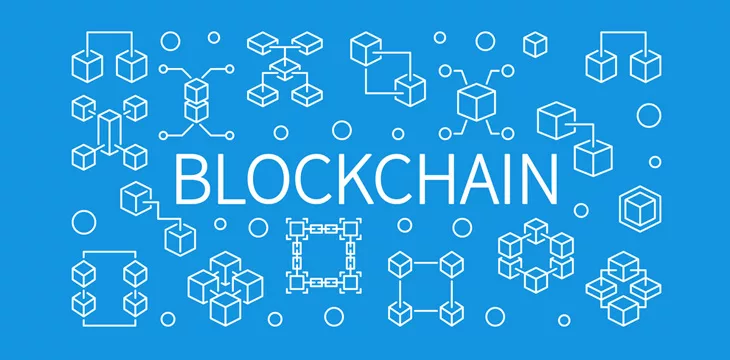|
Getting your Trinity Audio player ready...
|
As immutable distributed ledgers with complete tracking capabilities, blockchains can revolutionize many facets of almost every industry. One of the most obvious is supply chains, and since every industry has them, virtually no industry will escape the blockchain revolution.
In this article, we’ll examine how blockchains can ensure data integrity in supply chains. As always, I’ll give concrete examples of how things can work in practice.
Provenance Tracking
Imagine a world where a buyer could track a product every step of the way from its source to the shelf from which they’ve picked it up. Such a world is possible thanks to massively scalable public blockchains.
One of the major issues with supply chains today is that the data given by parties along them is unreliable. Thanks to blockchain technology, accurate data can be ascertained at every step in supply chains, with responsible parties cryptographically signing to verify its accuracy.
What would this mean for product supply chains? Ask De Beers, the world’s largest diamond mining company. This company’s long and controversial history is no secret, but these days, it is using blockchain technology to prove that its stones are conflict-free. This tracking of stones from source to shelf also allows De Beers to prove the diamonds are authentic, which would have obvious benefits for many other industries.
Data such as identifying information, production details, information on the materials used in manufacturing, a product’s journey through the supply chain, images and scans of the product at various points in its journey, and even data from IoT devices can all be uploaded to the blockchain. All involved parties can be more confident the data is accurate thanks to the transparent nature of utility blockchains and the immutability of the ledgers.
Quality Assurance
Whether it’s $1 million sports cars or $0.10 trinkets, every business is concerned with quality assurance. Businesses are also all-too-familiar with the blame-shifting and passing of the buck that can happen when irregularities are detected, or products disappear.
Since blockchains can be used to track processes, including both manufacturing processes and the transport of goods through supply chains, they can lead investigators to the source of irregularities. For example, if a product is signed off as undamaged when it leaves the factory, including photos and video proof, and then is found to be damaged when it is offloaded at the next port, it’s logical to conclude it was damaged during transport.
While this can impact every industry, one example of how blockchain is being used for these purposes today is the food safety blockchain project by IBM and Walmart. This project records where each piece of produce is grown, stored, processed, and inspected. It helps to deal with issues like recalls, helping to trace the source of the problem.
Data related to production, suppliers, transport, product specifications, batch/lot numbers, corrective actions, and things like certifications and inspections can be stored on utility blockchains, taking quality assurance to a whole new level.
Fraud and counterfeiting
We briefly touched on how blockchain can be used to authenticate goods when we discussed De Beers diamonds above, but let’s expand on that now. Fraud and counterfeiting are widespread problems across all types of supply chains, causing all sorts of havoc. For example, it’s estimated that food fraud costs $40 billion and affects around 10% of the supply chain. According to the Organization for Economic Cooperation and Development (OECD), counterfeit and pirated goods made up 3.3% of global trade as of 2019, and it has likely gotten worse since.
Blockchains make it impossible for any bad actor to manipulate or falsify data once it has been written to the public ledger. This enables everyone, including end consumers, to trace products back to their sources, ensuring authenticity.
How would this work in practice? Each luxury item would be assigned an NFT by its producer, allowing it to be tracked and traced on the blockchain for life. Each time the product changes hands, digital signatures could attest to the transaction, giving full visibility into the chain of custody and making it possible to determine without a doubt who owns or has owned a given item.
Blockchains can be used for many great things, but squeezing counterfeit goods out of the legitimate economy and making it impossible for fraudsters to tamper with data in their supply chains, is one of the most exciting. Businesses like Louis Vuitton, Gucci, and Rolex could greatly benefit from such systems.
Immutable utility blockchains are the key
Truthfully, the use cases outlined above only scratch the surface of what’s possible. Blockchains can also be used to set up smart contracts for real-time tracking and create sustainable supply chains.
However, for any of this to be possible, the blockchains themselves must be scalable. A few thousand transactions per second aren’t going to cut it—it will take millions of transactions per second to underpin global supply chains. Layer-two solutions won’t cut it either—all of the benefits of on-chain time-stamped records are lost when such ‘solutions’ are introduced. The aforementioned benefits are also lost when many private blockchains are used.
If you’re interested in learning more about scalable utility blockchains and how they can be used to create greater data integrity in supply chains, join us at the London Blockchain Conference between May 31 and June 2. This will be the largest enterprise blockchain conference in the world, and we’d love to see you there to share ideas on how blockchains can be used to create a better world. Register for free today!
Watch: How London Blockchain Conference will create the future with blockchain
Recommended for you
British lawmakers of the parliamentary national security committee have called for a temporary ban on political parties receiving donations in
Circle (NASDAQ: CRCL) soared in 2025 thanks to U.S. ‘regulatory clarity,’ but can this momentum survive a ban on crypto

 02-26-2026
02-26-2026 




